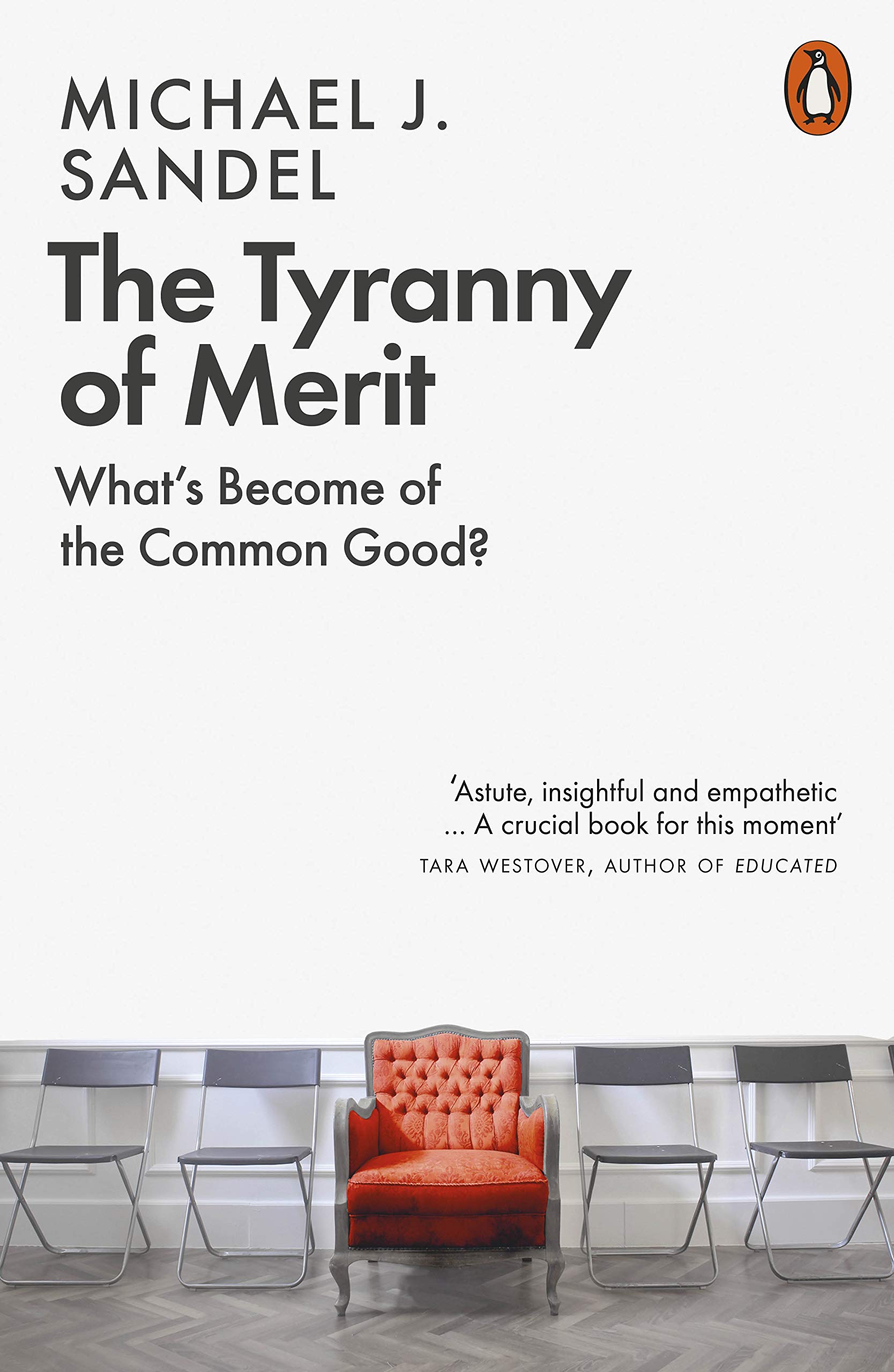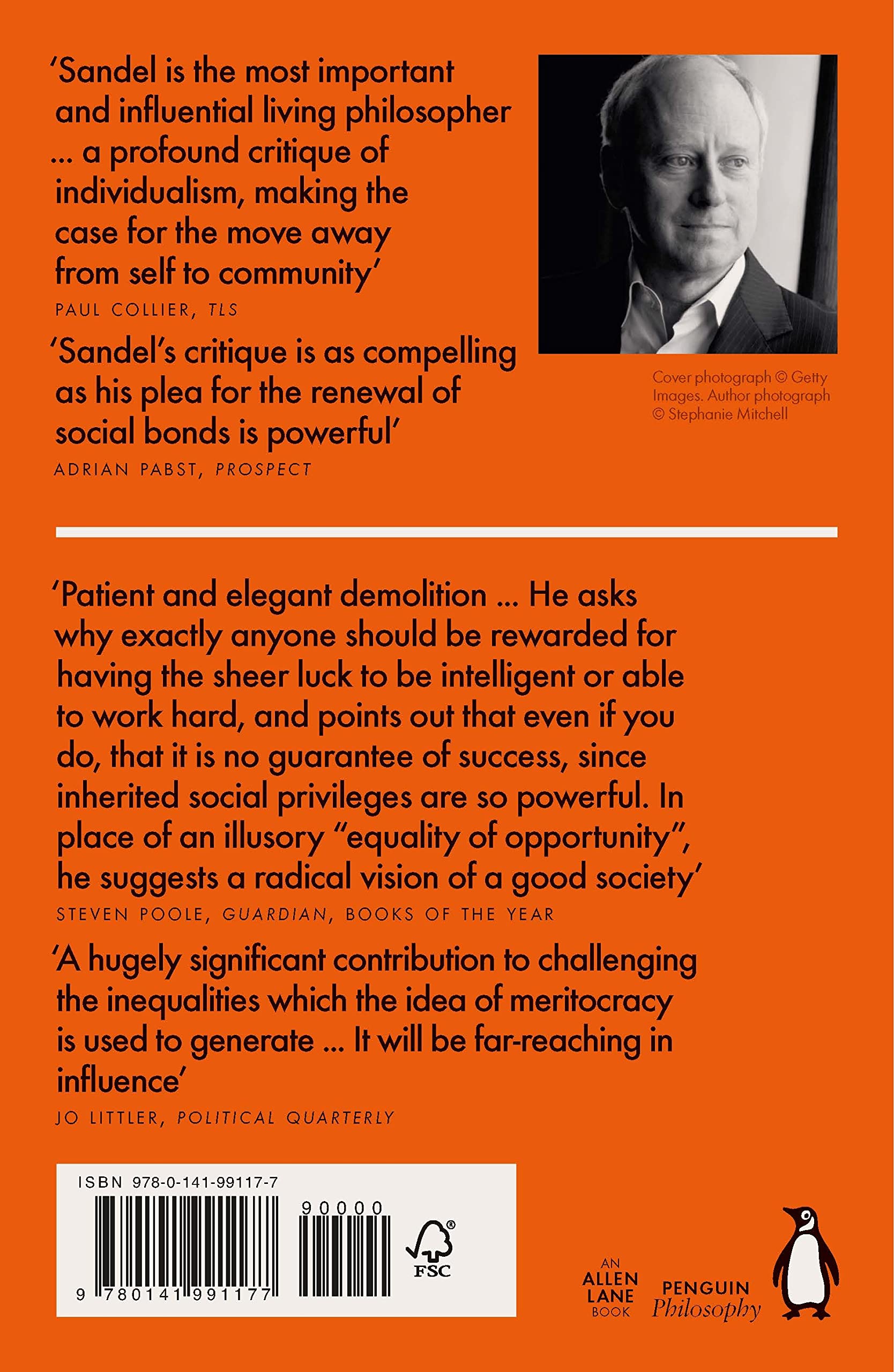


Michael J. SandelThe Tyranny of Merit: What's Become of the Common Good?
H**Z
Rise of the Lotus flower
There are two main ways of selection – by merit and by the luck of the draw. They are two divergent methods and we need them both for different situations. A plane is going down and there’s only one parachute. It is invidious in this situation to say the parachute ought to be given to the most deserving. Drawing straws seems manifestly fairer. Where we have prize for the best tennis player in the tournament, drawing straws is absurd. Sandel’s book is about selection by merit. A nice sounding, welcome word that hides a multitude of sin. The moment we begin to think of merit as getting what we deserve, for all the talent inherent in us and the effort we put in, we begin to see ourselves as winners and others as losers. We begin to think in the language of what we deserve. We begin to see ourselves as experts and the natural inheritors of just rewards. In this book, Sandel examines the merits of merit, and the reasons why meritocracy has become a disgusting word to ‘populists’. This is a deep and meticulous examination of merit as just desert, a notion that requires a broad understanding of what it is and how it works. It is not a straightforward notion. For example, Fredrich Hayek thinks that merit stands in the way of redistribution of wealth, whereas John Rawls believes that merit stands in the way of objections to redistribution. For Hayek, insistence on merit may deny redistribution on other grounds of desert and necessity. Rawlsian principles to not seek to reward merit or virtue. “If meritocracy is the problem’, Sandel asks, ‘what is the solution?’ It does not mean that we hire people on nepotism, but rethinking the way we conceive of success. It means ‘challenging inequalities of wealth and esteem that are defended in the name of merit but foster resentment, poison our politics, and drive us apart.’ The focus, Sandel says, should be on the two central domains of our lives – work and education. When we have time to reflect on the true nature of meritocracy, we will have to ask ourselves whether we see health and wealth as matters we deserve by our effort conceding ‘nothing to luck and grace – that everything is a reward or punishment for the choices we make’. This notion also plasters over the fallacious belief that being good and being great are one and the same. Sandel traces the roots of meritocracy and reminds us not to draw the wrong lessons from those who achieve through greatness. The young black boy who went on to break Babe Ruth’s home run record should not, Sandel warns, drive us to love meritocracy but to ‘despise a system of racial injustice that can only be escaped by hitting home runs’.
A**M
Excellent
Really enjoyed this book. Challenges the commonly held view of meritocracy as an unambiguous good. Particularly liked the sections on the difference between market value and societal contribution, and how we often conflate these terms. Highly recommended
K**R
Very thought provoking
This book paints a picture that many do not want to hear, but the evidence is around us all. There has to be some reasons on why we we have seen people gain power through a populist agenda. I find the argument that a policy of promoting rising and the issues with higher education to be sound, and things I have observed in the accountancy industry I have worked in for 30 years reinforce this point daily. I do wonder though if that alone can be the reason for the issues of the day. Immigration was given as a large reason why the UK voted for Brexit in 2016, due to the dissatisfaction of many people with their lot and the feeling they were being left behind. The country that provided the largest level of inward immigration from 2004 to then was Poland. I now live in Poland and it would be my argument that the base education children get in school in Poland is better than what is taught in UK, and this then allows the ability to obtain work that can provide a good living without need for higher education. So could it be that those that are feeling left behind is partly because the immigrants coming in have a better base education and can then work at a better level in jobs that do not require higher education merit?
C**C
Excellent book!
This is definitely a book to read, it helps to keep your options opens and gives a good picture around ethics and society.
K**N
Meritocracy is a bad thing...
Sandel takes aim st the graduate cosmopolitan class and gives them both barrels. He describes the meritocratic system as valorising a class who believe their personal talent justifies high pay and status whilst humiliating those with less talent as undeserving and dumb. This hubris and humiliation led to populism and the social divisions exemplified by Trump, Brexit, the yellow jackets etc. Its research and reasoning is impeccable. It will make for important and uncomfortable reading for many people who believe they occupy their privileged position by merit. Sandel is scathing in his elimination of this conceit. I bought this together with Head, Hand and Heart by David Goodhart that covers much of the same ground by describing how society has come to undervalue work performed by hand or compassion. Both books rank in my Top Ten. In an age where we have made going to university a form of apartheid they should be read by every academic and policy maker. Without reform the populist / protest divide will continue to grow. We must thank Sandel, an elite liberal, for being so honest about the system he swims in.
B**I
So relevant for our times
I haven't finished reading this yet but am finding it well written and totally plausible. Much of what it covers makes for uncomfortable reading in the sense of questioning views and attitudes that would seem acceptable and even laudable on the surface - it does seem to resonate with many feelings I have had over the years. Definitely recommend.
O**E
Made me feel better about myself and more compassionate towards others
Man this book is amazing. Nuanced, well sourced and enjoyable to read. Sandel’s trenchant analysis repeats, expands, expounds and then distills. I didn’t agree with all his points but overall I am totally convinced. And on a personal level it was exactly what I needed to read. This little diamond of prose will stick with me;“To renew the dignity of work, we must repair the social bonds the age of merit has undone.”If you’re interested in better understanding what’s wrong with American society and why, if you want to understand why life seems so hard these days, this is a book you should read.
T**
Time to be awake
A vulnerable and orphaned society, devoid of prudence needs to be cajoled, pushed and rise with the help of more crusaders and points man like the author
D**.
Excellent book
If you think that you deserve what you have because you effort more than other.. so, yo should read this book to understand the Tyranny of merit
A**9
Gut auf den Punkt gebracht
Gut lesbar, bringt die problematische Fokussierung auf meritokratische Prinzipien gut auf den Punkt und regt zum Nachdenken an...was kann man von einem Buch mehr verlangen...!?
A**N
Una perspectiva única de Mérito
Era muy escéptico sobre el libro antes de empezarlo y esperaba estar molesto cuando lo terminara. Pero el libro resultó ser una sorpresa y tuvo un impacto en mi forma de pensar sobre el mérito. A menudo consideramos que el mérito es objetivo y que es algo que alcanzamos completamente con nuestro propio esfuerzo y estamos orgullosos de ello. El libro habla de cómo este ciclo del mérito crea un ciclo negativo de falta de confianza y pérdida de autoestima en el individuo que causa muchos problemas para la sociedad a largo plazo. El libro invita al lector a reevaluar si su mérito es sólo su propio esfuerzo o el resultado de múltiples factores que damos por garantizados y en los que nunca pensamos. Recomendaría este libro a todo el mundo, ya que ayuda al lector a hacer introspección y a conocerse mejor a sí mismo, a la vez que se vuelve más empático con las personas que suelen ser las perdedoras en este mundo de méritos.
Trustpilot
2 days ago
4 days ago